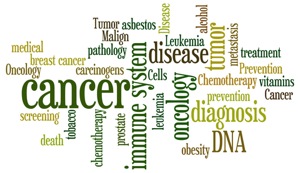
You never know when those persistent Hashimoto’s hypothyroid symptoms might save your life. An autoimmune thyroid disease is a warning signal the body is out of balance. By managing your Hashimoto’s hypothyroidism with nutritional and lifestyle interventions, you may prevent cancer as well.
Carrying the genes for cancer doesn’t make it a sure thing—a recent study found more than half of all cancers are preventable. In functional medicine, we have long known certain diet and lifestyle practices, as well as various nutritional and botanical compounds, can reduce the risk of cancer.
Not only can nutritional therapy help prevent cancer, but it also can aid in the management of chronic autoimmune and inflammatory disorders, such as Hashimoto’s hypothyroidism.
Cancer risk factors increase risks of Hashimoto’s hypothyroidism and more
Many of the same factors that raise the risk of cancer are also linked with many chronic immune disorders common today:
- Neurological disorders—memory loss, Alzheimer’s, dementia, Parkinson’s
- Autoimmune disease—Hashimoto’s hypothyroidism, rheumatoid arthritis, multiple sclerosis, Graves’ disease, vitiglio, type 1 diabetes
- Mood disorders—Anxiety, depression, obsessive-compulsive disorder, panic disorders
- Other health issues—Chronic pain, migraines, fatigue, obesity, type 2 diabetes
People’s diet and lifestyle choices significantly influence their chance of getting cancer or one of the other immune disorders listed above. For instance, smoking alone is a responsible for 30 percent of cancers (and 75 percent of lung cancer) in the United States, and obesity for another 20 percent.
Cancer prevention falling on deaf ears
Although an enormous amount of data on the causes and preventability of cancer already exist, little of it has been put into practice on a larger scale, according to researchers. Instead, people, and their doctors, remain skeptical that cancer can be prevented.
Obstacles to more widespread cancer prevention cited by the researchers include:
- The short-term focus of cancer research. The benefits of preventions take decades to be realized.
- Intervening too late. It may be too late to implement preventive strategies after a lifetime of cancer-causing habits.
- The focus of research on treatment instead of prevention. Research focuses on a single organ affected. Focusing on behavioral changes to prevent cancer might save more lives.
- Societal factors that affect health. Many of the factors that increase the risk of cancer and other diseases, such as fast foods, high-carb diets, and addictions to sedentary forms of entertainment (television, video games, the Internet), are accepted as normal in our society.
Managing Hashimoto’s hypothyroidism can prevent cancer
It’s possible to change social norms and thus affect health, say the researchers. The anti-smoking campaigns have led to a decline in lung cancer rates. Media attention on the dangers of trans fats has led to more awareness and less use of hydrogenated oils in food processing and the restaurant industry.
In functional medicine, we often don’t see people willing to make the necessary lifestyle changes until the “pain of the problem is worse than the pain of the solution.” Adopting a healthier diet and incorporating herbal and nutritional supplements into daily life can be challenging at first, but such changes significantly ease symptoms of Hashimoto’s hypothyroidism, restore well-being, and reduce the risk of cancer for many people.





Latest from the Blog
The Dirty Dozen
August 19, 2024The “Dirty Dozen” is a list of fruits and vegetables, compiled by the Environmental Working Group (EWG), that you should always eat organically. These produce items are not only delicious and nutrient-rich but also tend to carry high levels of pesticide residues when grown conventionally. By opting for organic versions, you can significantly reduce your […] Read more
Latest from the Blog
3-Day Detox Plan
Here’s a 3-day detox meal plan tailored to be autoimmune-friendly and compliant with functional medicine principles. This plan emphasizes anti-inflammatory, nutrient-dense foods while avoiding common triggers for autoimmune symptoms. Day 1 Breakfast: Green Smoothie Bowl Ingredients: Spinach, kale, cucumber, green apple, avocado, coconut milk, chia seeds. Why: Spinach and kale are rich in vitamins A, […] Read more